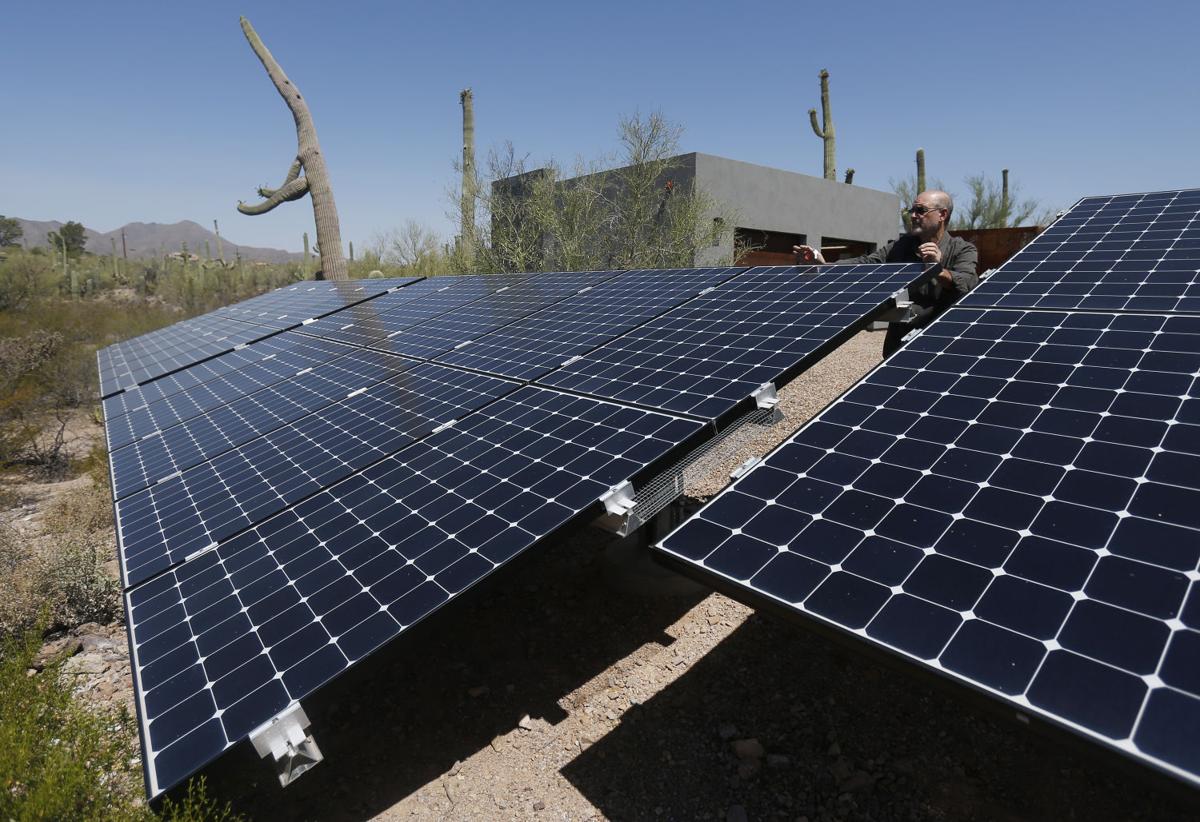A rural utility that serves parts of Southern Arizona has backed off its support of a controversial proposal to mandate rates with so-called demand charges, after a backlash from customers and consumer advocates.
But UNS Electric, a sister company to Tucson Electric Power Co., still wants customers with newer rooftop solar installations to pay demand charges, while cutting credits those customers get for their excess energy production under a process known as net metering.
A demand-charge mandate would fundamentally change the way customers pay for power by partly basing bills on periods of peak usage, and could set a precedent in TEP’s pending rate case as well as other future cases.
In the latest legal brief filed in its pending rate case, UNS dropped its support for a proposal — floated by the Arizona Corporation Commission’s own staff ahead of hearings held in March — that all of its residential and small-business customers be put on rates with demand charges.
However, the utility still wants to raise its basic monthly charge, force rooftop-solar customers to pay on-demand-charge rates and significantly cut credits solar customers get for their excess power production.
UNS spokesman Joe Barrios noted that the utility did not originally propose the demand-charge mandate for all customers, though it had supported the staff’s proposal.
“What we’re asking for is very similar to the model in our initial application,” Barrios said.
He said UNS decided to modify its approach to on-demand charges after concerned customers packed rate hearings in Tucson in March and public-comment sessions in Lake Havasu and Nogales.
UNS still believes demand charges may be appropriate for some customers, and the utility was prepared to give customers new tools to track their usage, Barrios said, but the timing was not right.
“We feel it would have been a challenge to educate customers about what we were proposing and what it would do to their bills,” Barrios said, adding that some opponents of the rate plan had spread “misinformation” about the impact of demand rates.
UNS has maintained its proposal to raise the fixed monthly charge all customers pay, to $15 from $10 now, for residential customers.
The company’s latest proposal also includes a new, optional rate for business customers that features a demand charge with a time-of-use rate, under which ratepayers are charged more during periods of peak demand.
Besides forcing solar customers on one of two rates with demand charges, UNS wants to end monthly carryovers, or “banking,” of customers’ excess energy and cut the reimbursement rate for excess energy sent back to the grid.
Solar advocates and industry representatives maintain UNS’ solar proposals are unfairly discriminatory and that additional charges would make rooftop solar uneconomical.
The Alliance for Solar Choice, a solar-industry group, says UNS has failed to prove that new charges on solar customers are needed with legally required studies on cost of service and a benefits-to-cost analysis, and that a pending, statewide proceeding on the value of customer-sited solar is the place to properly examine the issue.
The group also says the new rate at which UNS proposes to credit solar customers is inadequate and unfair.
In its latest brief, UNS has proposed cutting the amount it pays solar customers for excess energy from 11 cents per kilowatt-hour currently to about 6 cents, or roughly what the company pays for power from utility-scale solar farms.
The changes would apply to solar customers whose systems were approved for grid connection after June 1, 2015.
The proposal to raise the basic monthly charge has drawn fire from customers and consumer groups including AARP, which say it will hit low-income and fixed-income customers hardest.
The Arizona Community Action Association has proposed automatic enrollment of low-income customers already on other public-assistance programs and a special rate for low-income customers.
UNS opposes those ideas and instead has proposed more than doubling the discounts it offers to its poorest customers.
Meanwhile, the Residential Utility Consumer Office, a state watchdog agency, has offered an alternative proposal that would require solar-net-metering customers to take service under one of three rate options.
One is a “non-export” option, where a customer can choose a traditional rate if they do not export any excess power; another is an advanced time-of-use option including a minimum bill and a demand charge.
Under a third “renewable portfolio standard” bill credit option, a customer could choose any of the company’s traditional rates and get credits for excess power that would start at the current rate and decline over time as UNS’ renewable-energy generating capacity grows.





